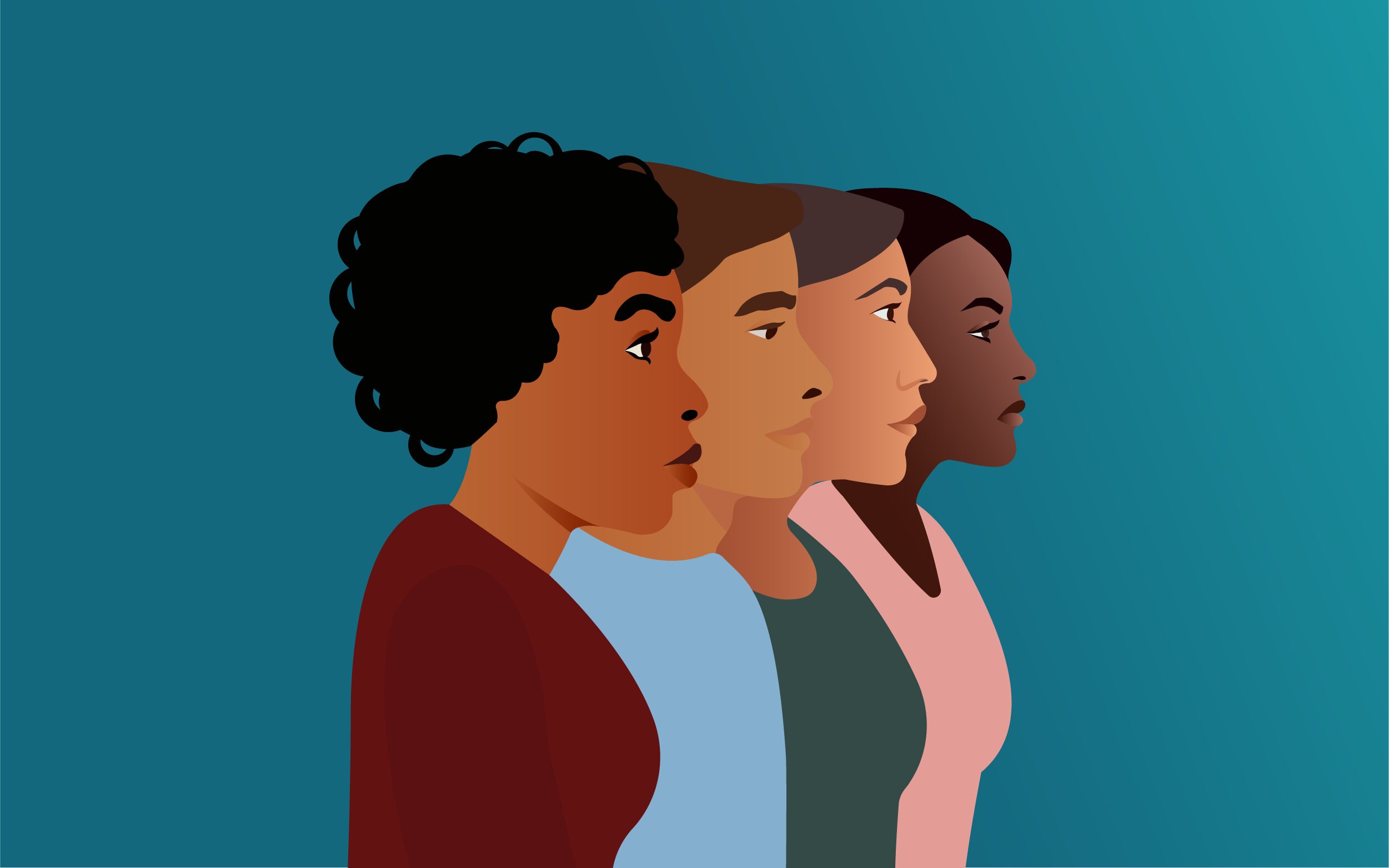Workplace misconduct and sexual harassment continue to affect women across industries and roles.
Reports show that incidents often go unaddressed, not because they don’t occur, but because they aren’t reported. Many women fear consequences or doubt the reporting process itself.
Anonymous reporting emerges as a crucial solution, offering a path for survivors to speak out safely.
Supporting these efforts also aligns with broader goals related to equity, inclusion, and ensuring safety for all employees.
The Alarming Reality of Harassment in the Workplace
Harassment remains a serious and persistent issue affecting women across all industries and job levels. Numbers paint a troubling picture: 37% of women report experiencing workplace harassment, according to data by AllVoices. Yet the vast majority remain silent. Only 10% of victims take formal action.
Silence is not a sign of absence, but a reflection of fear, mistrust, and exhaustion.
For women of color and LGBTQ+ women, the silence runs even deeper. These groups face disproportionate targeting and frequently lack the institutional support that others might find more accessible. Intersectional identities often intensify the barriers to reporting.
Biases related to race, sexual orientation, and gender identity create additional layers of intimidation and risk. Those who do speak up often experience disbelief, backlash, or social isolation.
- Only a small fraction of victims feel safe enough to report workplace misconduct.
- Women of color and LGBTQ+ women face higher rates of harassment and fewer allies in leadership.
- Intersections of identity increase vulnerability and limit access to formal redress.
Harassment doesn’t occur in isolation, it feeds into an organizational environment that can either enable it or disrupt it.
When left unchecked, workplace misconduct damages more than individual well-being. The cost to companies grows exponentially.
Organizational Consequences

Organizations do not operate in a vacuum. A toxic environment shaped by unaddressed harassment creates visible and invisible consequences that impact every level of the business. Turnover spikes, as talented individuals refuse to stay in places where safety is compromised.
Absenteeism increases, driven by mental stress, disengagement, or trauma. Team morale sinks as remaining employees watch workplace misconduct go unchallenged.
Legal, financial, and reputational damage follows. Lawsuits drain resources. Public scandals erode trust. Top candidates avoid applying to workplaces known for inaction. Stakeholders begin to question leadership integrity and long-term stability.
- Elevated employee turnover due to loss of trust and psychological safety
- Increased absenteeism related to stress, anxiety, and burnout
- Decreased morale and motivation among both affected and observing employees
- Legal exposure through lawsuits, regulatory fines, and compliance violations
- Reputational harm that deters talent, investors, and clients
- Decline in overall productivity as teams operate under tension and fear
Culture erodes slowly when silence becomes policy. Delay magnifies damage. Early reporting and strong response frameworks reduce risk and reinforce trust.
Creating safe, anonymous systems isn’t just the right step for individuals. It becomes a strategic move that shields long-term organizational health.
Barriers to Reporting Misconduct

Workplace harassment persists in large part due to systemic barriers that discourage reporting. These obstacles are not only psychological but also cultural and structural.
To create environments where workplace misconduct is confronted, each of these barriers must be acknowledged and dismantled.
Fear of Retaliation
Fear has a paralyzing effect. Women often hesitate to report harassment due to perceived threats to their careers, reputations, and personal well-being.
- Demotion
- Exclusion
- Verbal abuse
- Subtle sabotage
That fear is not unfounded; organizational responses have too often been reactive or punitive.
- Only 40% of women believe their employer would handle workplace misconduct claims fairly and effectively.
When anonymity is introduced, data shows a noticeable change:
- Anonymous reporting platforms consistently report higher levels of disclosure and employee engagement.
- Fear of retaliation decreases significantly when identity protection is guaranteed.
Lack of Trust and Accountability

When organizations promote reporting but fail to act, trust erodes. Employees pay attention to how leadership responds, not only to complaints but to the individuals who raise them.
Empty promises, delayed action, or favoritism toward high-ranking offenders send a message louder than any policy.
- Investigations with no visible outcomes, leaving employees in the dark.
- Perception of leadership bias, especially when complaints involve those in senior positions.
- Repeat offenders facing no consequences, encouraging a culture of impunity.
A reporting system loses credibility once it’s perceived as performative.
Survivors begin to assume that speaking up will only lead to more frustration or harm. Without a transparent and accountable process, silence becomes the safer option.
Cultural and Structural Challenges
Women face more than individual harassment—they navigate organizational structures that are often stacked against them.
Gender bias in hiring, evaluation, and promotion weakens upward mobility. For many, harassment is just one symptom of a much broader systemic issue.
- “Broken rung” in the career ladder which refers to the lack of early advancement opportunities for women, especially in middle management.
- Underrepresentation in leadership, reducing visibility and advocacy at decision-making levels.
- Erosion of DEI and mentorship programs, particularly those aimed at women of color, is limiting access to support networks.
Without real investment in structural change, reports of workplace misconduct remain isolated. They don’t lead to reform, they vanish into silence. Rebuilding trust requires a dual approach: protect individuals in the moment and reshape systems that caused the harm.
The Role of Anonymous Reporting Tools
Workplace environments shaped by fairness, inclusion, and safety must prioritize mechanisms that allow all employees, particularly women, to voice concerns without hesitation.
Reporting systems that protect identity and remove fear from the process are vital. Anonymous tools have emerged as transformative enablers of transparency and empowerment.
Unlike confidential systems that may still expose users through back-end tracing, anonymous platforms eliminate such risks, creating safer paths for disclosure.
Definitions and Key Differences
Anonymous reporting and confidential reporting are often confused, but they are fundamentally different
Confidential systems may withhold identity from most viewers, yet still retain identifying information accessible to investigators or administrators.
Anonymous systems offer full protection by removing all digital and personal identifiers. Reporters can file concerns with no traceable links back to them.
- Identity is protected but known to specific internal parties.
- No names, IP addresses, metadata, or identifying details are stored or revealed.
- Anonymity removes the threat of retaliation, increasing the likelihood of disclosure.
Anonymous systems signal that an organization takes misconduct seriously while prioritizing the well-being of its employees.
Impact on Empowering Women
Women who experience workplace misconduct often hesitate to report due to fear of retaliation, disbelief, or social repercussions.
Anonymous systems provide a safe alternative, allowing women to come forward without risking their careers, reputations, or emotional well-being.
Certain platforms have created secure spaces where women feel encouraged to speak up. When trust in leadership is low or when culture minimizes complaints, anonymity restores the agency to act.
- Increased reporting rates, especially among women in male-dominated industries.
- Empowerment to speak up without fear of reprisal or retribution.
- A first step toward justice, often leading to systemic change once patterns are uncovered.
Offering a safe outlet means organizations can surface issues that otherwise remain buried. In doing so, environments become more responsive and inclusive for all employees.
Inclusivity and Equity Gains

Marginalized voices, particularly those of women of color, LGBTQ+ women, and disabled women, face additional risks when reporting workplace misconduct. Anonymous tools allow these employees to share experiences and concerns without added personal exposure.
By amplifying stories that may never reach formal channels, these tools help identify patterns of behavior that may not be visible in traditional reporting structures.
Data generated through anonymous tools creates insight into blind spots that leadership may overlook.
- Increased participation by historically silenced groups.
- Better-informed leadership through broader data input.
- Inclusion-focused improvements are built on real feedback, not assumptions.
Rather than relying on top-down assessments, organizations begin to make decisions informed by lived experiences. That shift helps close structural gaps and build accountability.
Best Practices for Implementing Anonymous Reporting Systems
Creating a truly effective anonymous reporting structure takes more than deploying software. It requires thoughtful design, consistent communication, and long-term commitment.
Systems that work well address user trust, technical security, and cultural normalization. Organizations that treat reporting as an active, living process, not a checkbox, will find greater success in making employees feel safe.
Key Components

A robust system should be designed for security, accessibility, and efficiency. Technology must prevent identity tracing, be easy to navigate, and provide multiple access points.
- Multi-channel options such as web portals, mobile apps, and dedicated hotlines.
- Full encryption and anonymity to protect user data at every level.
- Centralized case tracking enables internal teams to monitor, audit, and respond consistently.
- Audit readiness, ensuring compliance with internal and external standards.
Tools that lack one or more of these components often discourage use or fail under scrutiny. Choosing platforms built for real-world scenarios is key to long-term success.
Creating a Response Framework
Installing an anonymous tool means little if responses are delayed or unclear.
Organizations must treat every report as serious and urgent, following a structured plan to investigate, resolve, and communicate outcomes.
- Prompt acknowledgment of every report submitted.
- Transparent investigative processes, outlining what steps are being taken and why.
- Accountability in decision-making, with visible consequences where misconduct is confirmed.
- Clear feedback loops, ensuring reporters are informed of outcomes without violating confidentiality.
- Legal compliance, supported by documentation, due process, and fair treatment.
Trust builds when actions follow words. Survivors and witnesses begin to believe the system works once they see consistent, just results.
Building Awareness and Trust
Even the most secure platform is ineffective if no one uses it. Employees must know the system exists, believe in its value, and understand how to use it. That requires ongoing education and cultural reinforcement.
- Train HR and managers in sensitive response and escalation processes.
- Promote the tool through onboarding sessions, internal newsletters, posters, and digital platforms.
- Encourage leadership visibility, with executives openly supporting anonymous reporting as a cultural norm.
Normalize usage by treating reports with respect and discretion, not stigma.
Trust grows when employees consistently see that speaking up leads to real change.
The Bottom Line
Anonymous reporting tools create essential pathways for women to report workplace misconduct without fear.
Safety, dignity, and justice start with the ability to speak up.
Employers who commit to listening, taking action, and improving culture help shape environments where women thrive.





